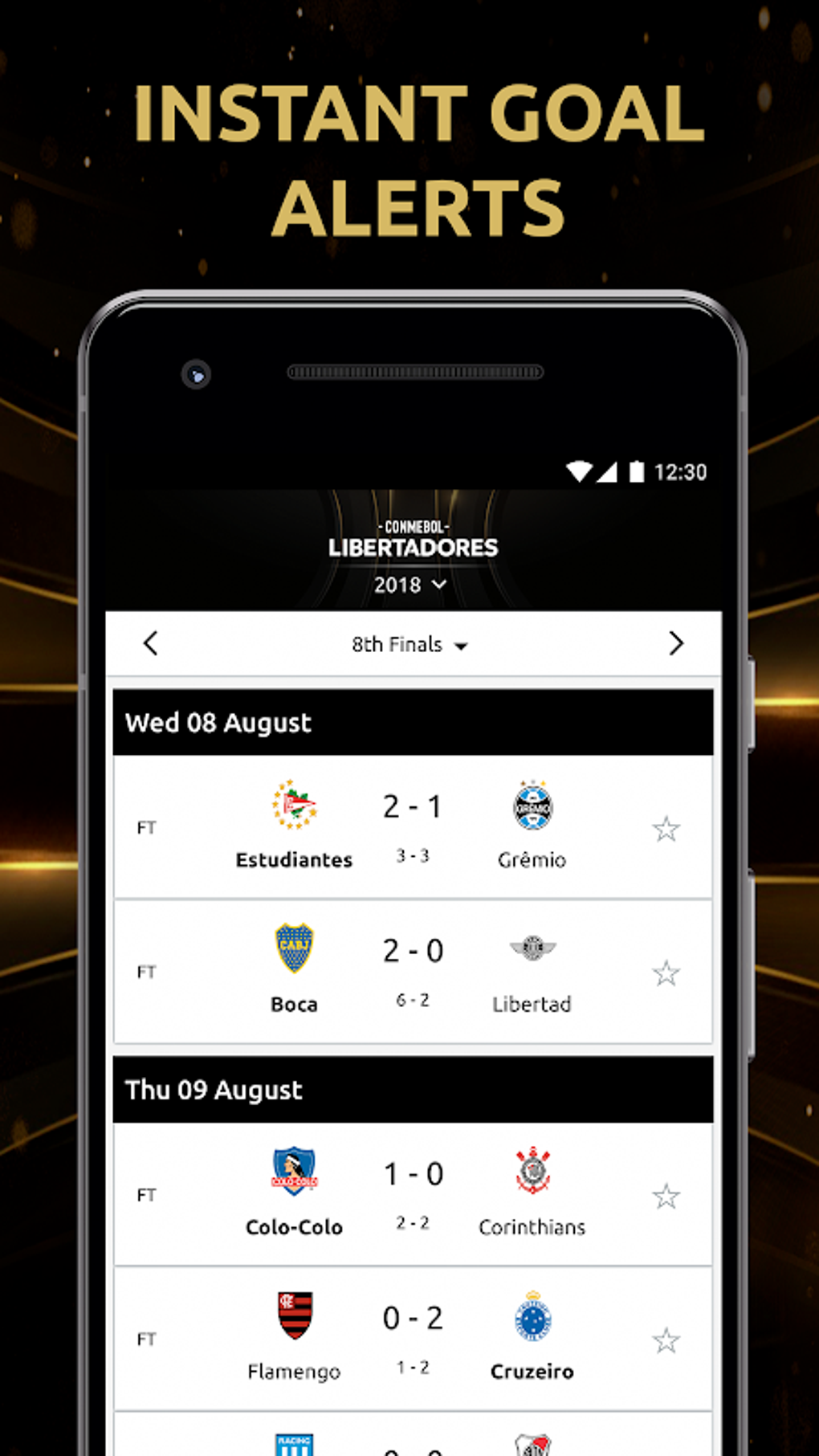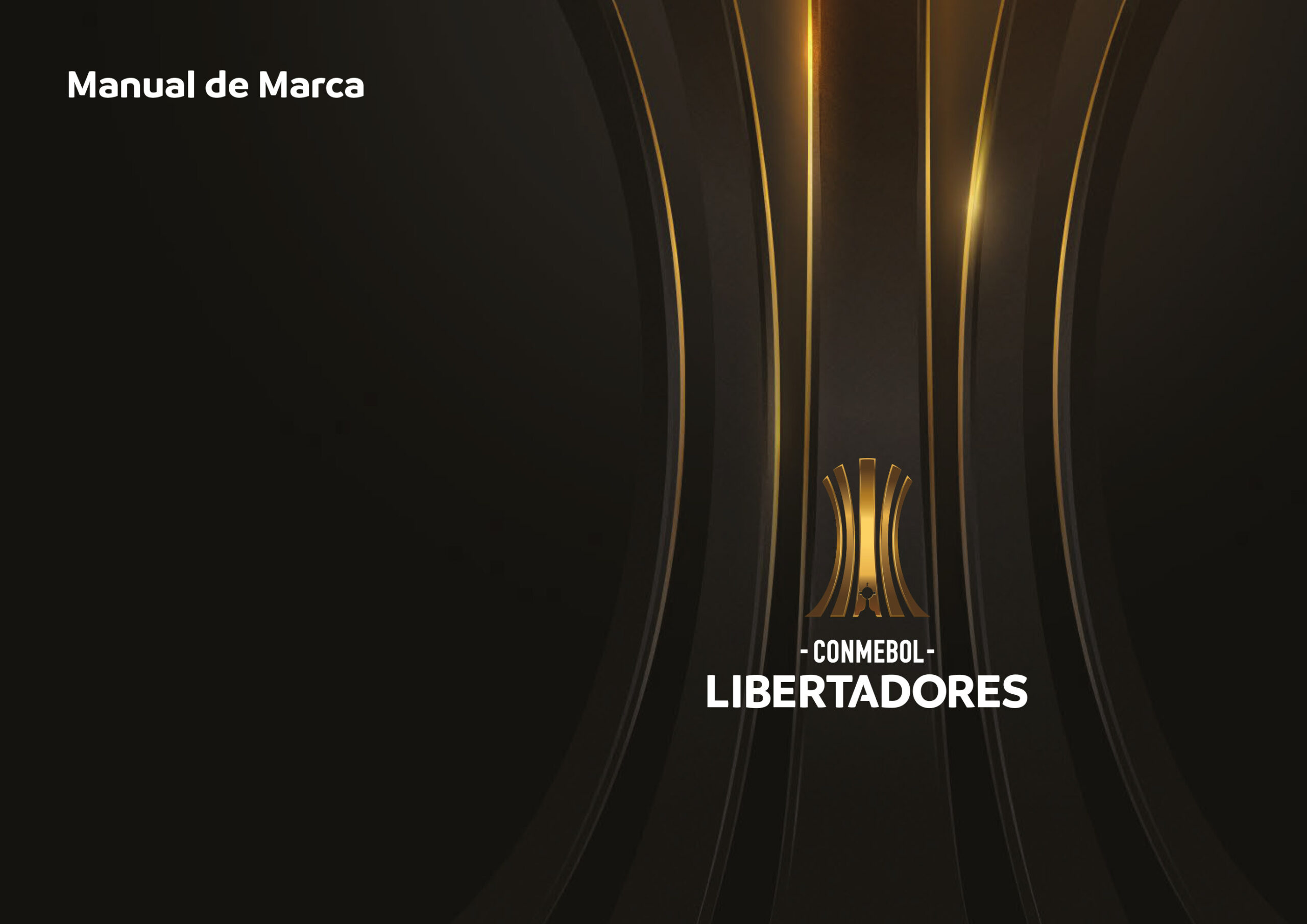When it comes to South American football, one tournament stands above the rest - the Conmebol Libertadores. This is not just a competition; it's a celebration of passion, skill, and history. Since its inception in 1960, the Copa Libertadores has become the pinnacle of club football in the continent, drawing millions of fans and producing unforgettable moments. If you're into football, this is the tournament you don't wanna miss out on.
Let me break it down for you. The Conmebol Libertadores is more than just a competition. It's where legends are born, and rivalries are fueled. Every year, the best clubs from South America battle it out in a knockout-style format, and the stakes couldn't be higher. This ain't just about winning a trophy; it's about pride, history, and legacy. Fans go crazy for this thing, and for good reason.
But what makes the Conmebol Libertadores so special? It's not just the quality of football, though that's definitely a huge part of it. It's the atmosphere, the passion, and the sheer intensity of every single match. From the opening whistle to the final whistle, every game feels like a life-or-death situation. And that's what makes it so damn exciting to watch.
Read also:Brooke Teague And Nathan Smith A Love Story Thatrsquos Got Everyone Talking
What Exactly Is the Conmebol Libertadores?
So, you might be wondering, what exactly is the Conmebol Libertadores? Simply put, it's the premier club football tournament in South America. Organized by CONMEBOL (the governing body for football in South America), the tournament features the top clubs from each member country. It's like the Champions League of South America, but with its own unique flavor.
Here's the deal: the tournament starts with a group stage, where teams are divided into groups of four. They play each other in a round-robin format, and the top two teams from each group advance to the knockout stages. From there, it's single-elimination all the way to the final. It's intense, competitive, and absolutely thrilling.
History of the Conmebol Libertadores
The Copa Libertadores has a rich history that dates back to 1960. Back then, it was called the "Copa Libertadores de América," and it was created to crown the best club in South America. Over the years, it's grown into one of the most prestigious tournaments in the world. Some of the biggest names in football have graced this stage, and the tournament has produced countless memorable moments.
One of the coolest things about the Libertadores is how it reflects the evolution of South American football. From the early days when clubs like Peñarol and Santos dominated, to the modern era where teams like River Plate and Flamengo are the ones to beat, the tournament has always been a barometer of the continent's footballing prowess.
Who Are the Big Players?
When it comes to the Conmebol Libertadores, there are a few teams that stand out. These are the powerhouses that have dominated the tournament over the years. Let's take a look at some of the big players:
- Independiente: The most successful team in Libertadores history, with 7 titles under their belt.
- Peñarol: Another giant, with 5 titles and a rich history in the tournament.
- Santos: Known for their legendary star Pelé, Santos has won the Libertadores 3 times.
- River Plate: The current kings of Argentine football, River has won the tournament 4 times.
- Flamengo: The Brazilian giants have won the Libertadores twice, with their most recent victory in 2019.
These teams have set the benchmark for success in the Libertadores, and they continue to be the ones to watch out for every year.
Read also:Hdhub4u 2025 Your Ultimate Guide To Movies Shows And Downloads
The Format of the Tournament
Understanding the format of the Conmebol Libertadores is key to appreciating the tournament. Here's how it works:
First up, you've got the group stage. 48 teams are divided into 12 groups, with each group consisting of 4 teams. They play each other twice, home and away, and the top two teams from each group advance to the knockout stages. It's a tough challenge, and only the best teams make it through.
Once the knockout stages begin, it's single-elimination all the way to the final. Each knockout match is played over two legs, with the winner determined by aggregate score. If the scores are level after the second leg, it goes to extra time and penalties. The final is usually a one-off match played at a neutral venue, though this has changed in recent years to a two-legged format.
Why Is the Libertadores So Special?
What sets the Conmebol Libertadores apart from other tournaments? For starters, it's the passion. South American football fans are known for their fervor, and the Libertadores brings out the best (and sometimes the worst) in them. The atmosphere at the stadiums is electric, with fans creating a wall of sound that can be both intimidating and exhilarating.
Then there's the quality of football. The Libertadores features some of the best players and teams in the world. From Neymar to Lionel Messi, many of the game's biggest stars have graced this stage. And let's not forget the legendary managers who have guided their teams to glory, like Carlos Bianchi and Jorge Sampaoli.
The Rivalries That Define the Tournament
Rivalries are a big part of what makes the Conmebol Libertadores so special. Whether it's the eternal clash between Boca Juniors and River Plate, or the fierce battles between Flamengo and Corinthians, these matches are more than just football. They're about history, pride, and identity. Fans take these games very seriously, and the stakes couldn't be higher.
One of the most famous rivalries in the Libertadores is the "Superclásico" between Boca Juniors and River Plate. These two Argentine giants have a history that goes back decades, and their matches in the Libertadores are always must-see events. The tension is palpable, and the intensity is off the charts.
How the Libertadores Impacts South American Football
The Conmebol Libertadores doesn't just exist in isolation; it has a huge impact on the development of South American football. For one thing, it provides a platform for young players to showcase their talent. Many of the world's top stars have used the Libertadores as a springboard to bigger and better things. Think Neymar, James Rodriguez, and Luis Suarez, just to name a few.
It also drives investment in the game. Teams that perform well in the Libertadores attract sponsors, increase their fan base, and generate revenue through TV rights and merchandise sales. This, in turn, helps them improve their infrastructure and invest in youth development programs, creating a virtuous cycle of growth.
The Economic Impact of the Libertadores
Let's talk numbers. The Conmebol Libertadores is a massive business, generating millions of dollars in revenue every year. According to a report by Deloitte, the tournament contributes significantly to the economies of the countries involved, through tourism, media rights, and sponsorships. It's not just about football; it's about creating value for everyone involved.
For example, when Flamengo won the Libertadores in 2019, it was estimated that the club generated over $50 million in additional revenue. This included everything from ticket sales to merchandise sales and increased sponsorship deals. It shows just how valuable the tournament is, not just for the clubs but for the entire football ecosystem.
The Future of the Conmebol Libertadores
As football continues to evolve, so does the Conmebol Libertadores. In recent years, there have been changes to the format, with the introduction of a two-legged final and the expansion of the group stage. These changes have been made to increase the competitiveness of the tournament and make it more appealing to fans worldwide.
Looking ahead, there's talk of further reforms, such as increasing the number of teams or even expanding the tournament to include clubs from North America. While these ideas are still in the early stages, they show that CONMEBOL is committed to keeping the Libertadores relevant and exciting for future generations.
Conclusion: Why You Should Care About the Conmebol Libertadores
So there you have it, folks. The Conmebol Libertadores is more than just a football tournament; it's a celebration of everything that makes the beautiful game so special. From its rich history to its passionate fans and world-class players, the Libertadores has something for everyone.
If you haven't already, make sure to tune in to this year's tournament. You won't regret it. And don't forget to share this article with your friends and leave a comment below. Let's keep the conversation going and show the world just how amazing the Conmebol Libertadores really is!
Table of Contents
- History of the Conmebol Libertadores
- Who Are the Big Players?
- The Format of the Tournament
- Why Is the Libertadores So Special?
- The Rivalries That Define the Tournament
- How the Libertadores Impacts South American Football
- The Economic Impact of the Libertadores
- The Future of the Conmebol Libertadores
- Conclusion


